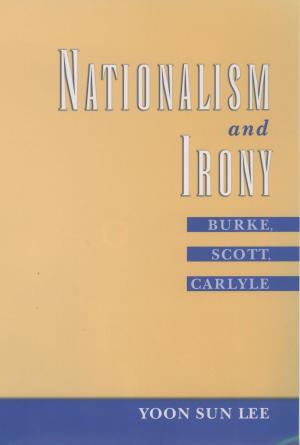Native American Literature: A Very Short Introduction
Nonfiction, Social & Cultural Studies, Social Science, Cultural Studies, Fiction & Literature, Literary Theory & Criticism| Author: | Sean Teuton | ISBN: | 9780199944545 |
| Publisher: | Oxford University Press | Publication: | December 20, 2017 |
| Imprint: | Oxford University Press | Language: | English |
| Author: | Sean Teuton |
| ISBN: | 9780199944545 |
| Publisher: | Oxford University Press |
| Publication: | December 20, 2017 |
| Imprint: | Oxford University Press |
| Language: | English |
North American indigenous literature began over thirty thousand years ago when indigenous people began telling stories of emergence and creation, journey and quest, and heroism and trickery. By setting indigenous literature in historical moments, Sean Teuton skillfully traces its evolution from the ancient role of bringing rain and healing the body, to its later purpose in resisting European invasion and colonization, into its current place as a world literature that confronts dominance while celebrating the imagination and resilience of indigenous lives. By the time Europeans arrived in North America indigenous people already understood the power of written language and the need to transmit philosophy, history, and literature across generations and peoples. Seeking out multiple literary forms such as sermon, poetry, and novel to serve differing worldviews, indigenous authors have shaped their writing into North American indigenous literature as we recognize it today. In this lucid narrative, Sean Teuton leads readers into indigenous worlds. He describes the invention of a written indigenous language, the first indigenous language newspaper, and the literary occupation of Alcatraz Island. Along the way readers encounter the diversity of indigenous peoples who, owing to their differing lands, livelihoods, and customs, molded literature to a nation's specific needs. As Teuton shows, indigenous literature is one of the best places for understanding indigenous views about land and society and the role of humanity in the cosmos. In turning to celebrated contemporary authors such as Thomas King, Leslie Silko, Sherman Alexie, Louise Erdrich, and James Welch, Teuton demonstrates that, like indigenous people, indigenous literature continues to survive because it adapts, both honoring the past and reaching for the future.
North American indigenous literature began over thirty thousand years ago when indigenous people began telling stories of emergence and creation, journey and quest, and heroism and trickery. By setting indigenous literature in historical moments, Sean Teuton skillfully traces its evolution from the ancient role of bringing rain and healing the body, to its later purpose in resisting European invasion and colonization, into its current place as a world literature that confronts dominance while celebrating the imagination and resilience of indigenous lives. By the time Europeans arrived in North America indigenous people already understood the power of written language and the need to transmit philosophy, history, and literature across generations and peoples. Seeking out multiple literary forms such as sermon, poetry, and novel to serve differing worldviews, indigenous authors have shaped their writing into North American indigenous literature as we recognize it today. In this lucid narrative, Sean Teuton leads readers into indigenous worlds. He describes the invention of a written indigenous language, the first indigenous language newspaper, and the literary occupation of Alcatraz Island. Along the way readers encounter the diversity of indigenous peoples who, owing to their differing lands, livelihoods, and customs, molded literature to a nation's specific needs. As Teuton shows, indigenous literature is one of the best places for understanding indigenous views about land and society and the role of humanity in the cosmos. In turning to celebrated contemporary authors such as Thomas King, Leslie Silko, Sherman Alexie, Louise Erdrich, and James Welch, Teuton demonstrates that, like indigenous people, indigenous literature continues to survive because it adapts, both honoring the past and reaching for the future.















